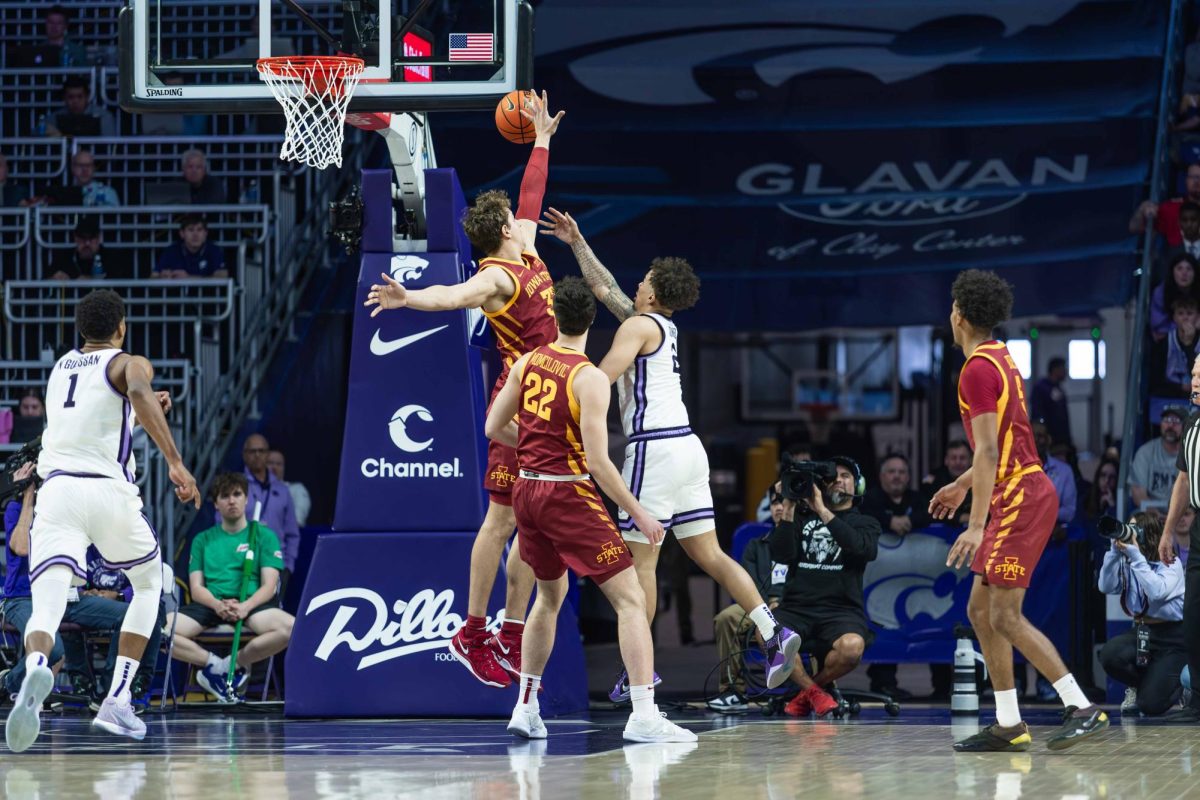Resurgence of ska makes noise in industry
March 27, 1997
Rock ‘n’ roll star wannabes can put the grunge guitars away and pull out the brass because according to music trade magazines Alternative Press and SPIN, ska is the next big sound to hit the music industry.
A.P. named ska “the next big trend” behind industrial and the ’80s revival in its year-end December issue, while techno and punk fell behind ska in SPIN’s prediction for 1997’s “next music trend.”
“I certainly hope it is,” said Ellen Zoe Golden, a publicist at Universal Records. “I don’t know if [guitar rock] will go away, but there is definitely a resurgence of ska going on.”
Ska was originally born from a mixture of Jamaican and Caribbean during the early ’60s. It since has evolved into other forms such as reggae, ska-core and swing-ska.
West coast punk bands started twisting ska with punk in the early ’80s, but it wasn’t until recent pop-punk bands began experimenting with trombones, trumpets and saxophones that ska became a radio-friendly musical trend.
Matt McNeil, on-air announcer at KCCQ in Ames, described ska as “a different outlet for people who have always enjoyed guitar music.”
“Ska has actually been on the radio dating back to Madness in 1983,” McNeil said. “It’s one of those things where the trade magazines are jumping on the bandwagon rather late.”
McNeil said Top 40 stations like KCCQ are seeing more promotional, mainstream and mellow versions of ska than there were in the ’80s.
Davo, booking agent at the Des Moines night-club The Safari, said he predicts ska will become more mainstream in the future. “I was around during the second wave movement of the ’80s,” he said. “But I think this one’s going to be a lot bigger.”
Golden, like many industry big-wigs, has enjoyed seeing the ska bands on her label finally get the credit they deserve. She currently works with the Orange County, Calif. seven-piece ska band Reel Big Fish.
The band is one of many ska acts that has recently found its way to Central Iowa.
Others that have toured the area include The Skeletones, Spring Heeled Jack, The Twistoffs, Goldfinger, Johnny Socko and The Urge.
According to Davo, ska shows in Iowa have become especially more popular with teenagers.
“We’ve been doing a lot of ska shows,” he said. “It’s the younger kids that are really into it. What ska does is it makes it hip for white people to like reggae.”
Davo said the Safari can bring in 150 people for an all-ages ska show and only 60 for a 21-and-over show.
Although the number of ska shows in the Midwest are increasing, band members say “underground” ska shows have been around for years.
“People are saying that ska broke in ’96,” Goldfinger guitarist Charlie Paulson said. “Obviously, I don’t agree. “
As ska becomes more mainstream, music industry experts predict the music to crossover into other styles. Andrew Gonzales, drummer for Reel Big Fish, feels his band is already at that point, describing the group as the “purgatory between ska and pop.”
“We’re ska-pop, nothing else,” he said. “Sometimes we wish we were a glam band, but we’re not,” he said.
McNeil said that with a variety of bands like No Doubt, 311 and Us3, ska has become extremely friendly for the Top 40 format. “It has more mass appeal to it than most alternative,” he said.
Davo added that ska and punk seem to be a common mix. “I guarantee you there’s not one punk band that doesn’t have a ska song on their record.”
He said that Safari regulars seem to be more into old-school ska, “the flat-out first wave Jamaican ska.”
One problem with the resurgence of ska, McNeil said, is the 1,000 or so bands that will come along and try to mimic it.
“I don’t know if mainstream musicians will be able to play it,” he said. “Most good ska musicians have been playing Caribbean since they were kids.”
As far as what the magazines’ statements will do for ska bands in the future, band members and industry workers were unsure.
“The music sells the records, but it will definitely help,” Golden said.
Gonzales disagreed, adding, “You should listen to music because it sounds good, not because it’s ska.”






